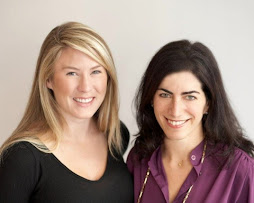
Last week the Mom/Business Owner Affinity Group gathered for a wonderful discussion where several of IGC's more seasoned parents (aka "moms with distance") joined regular members of the affinity group (most of whom have young children under the age of 10) to discuss their experiences of raising children and juggling their careers. The "moms with distance" all have childredn who are now in their 20s and 30s. These members shared stories of memorable parenting highs and lows, favorite family traditions and lessons learned retrospectively, sparking a lively, wide-ranging conversation that touched on evergreen parenting challenges (e.g., handling picky eaters) as well as more recent phenomena, including helicopter parenting. We wanted to share some of the feedback and tips they shared with the group.
Celia, who worked full-time while raising her two sons, talked about the importance of establishing rituals, celebrating important achievements, always following through on threatened punishments and eating dinner as a family. Given her work schedule, she recalled, this often meant sitting down to a home-cooked meal at 9:00 pm at night - which her sons grew up believing was a typical dinner hour. She also introduced the group to the concept of the "favor bank", a method of encouraging unsolicited acts of generosity (as in clearing the table without being asked) and, if a child's virtual balance was running particularly low, potential grounds for ruling out a special treat until his behavior improved. Celia's overriding goal, she said, was to raise boys who were not spoiled brats, and she is proud of the fact that she and her husband now have two adult sons whom they genuinely like and enjoy spending time with. Celia also recommended a few books that she found invaluable, particularly when her sons hit adolescence, including Siblings Without Rivalry: How to Help Your Children Live Together So You Can Live Too and How to Talk So Kids Will Listen & Listen So Kids Will Talk, both by Adele Faber and Elaine Mazlish.
Karen, who also worked full-time while her daughter was growing up, also emphasized the importance of carving out regular time together - in her family's case, during meals and on weekends at a minimum. But this wasn't always the case. She recalled a particularly painful moment when her daughter Heather, who was then six, told her that her frequent traveling meant that they "weren't a family any more." Karen subsequently decided to cut her consulting hours back to part-time, and had to threaten to quit her job altogether before her boss grudgingly agreed to let her do it. Fortunately for the entire group, Karen's daughter Heather, who now has two young sons of her own and is also an IGC member, was on hand to share her perspective as well. She said that while she has no memory of being a catalyst in her mother's decision to alter her work schedule, she did grow up believing that Saturdays and Sundays really were "family days" and didn't realize the rest of the world called them "the weekend" until she was a teenager.
Alice, in reflecting on her parenting style and philosophy, said that she very consciously chose to raise her children in a much more laissez-faire way than she herself had been raised. She noted that this not only felt right to her at the time, but that she continues to feel good about the decisions she made, given that both of her children are now thriving, highly independent adults.
It seemed to many of the younger moms in the room that perhaps being a parent - and in particular, a mother - was less fraught with guilt and anxiety a generation ago than it is today. While all of the "moms with distance" had to engage in the same kind of juggling act that working women today must contend with, they agreed that they didn't spend a lot of time agonizing (or comparing notes with friends) about how well they were doing it. By comparison, as one mom with a toddler pointed out, the continued evolution of parenting as a "science" over the past couple of decades has created enormous pressure on parents, borne disproportionately by mothers, to get it right at every step of the way - or be made to feel that they risk potentially dire consequences.
Ultimately, the two-hour discussion didn't result in any resolutions, proclamations or manifestos. That wasn't the point. But it did get a lot of bright, accomplished women to speak candidly about, and listen respectfully to, a variety of opinions on the topic of motherhood. And it's quite possible that it got many of the newer moms in the room (aka "moms in the thick of it") to feel perfectly good about deviating, as often as necessary, from the use of patient explanations and reasoning to say "NO, because I said so and that's final." It's a tried-and-true method that worked on all of us, after all.
Guest Blogger: Eden Abrahams (co-faciliator, Mom Business Owner Affinity Group & Founder of Clear Path Executive Coaching)




No comments:
Post a Comment